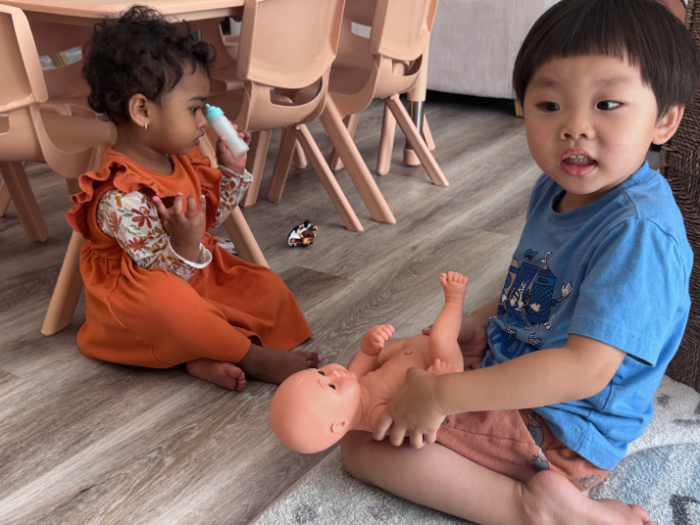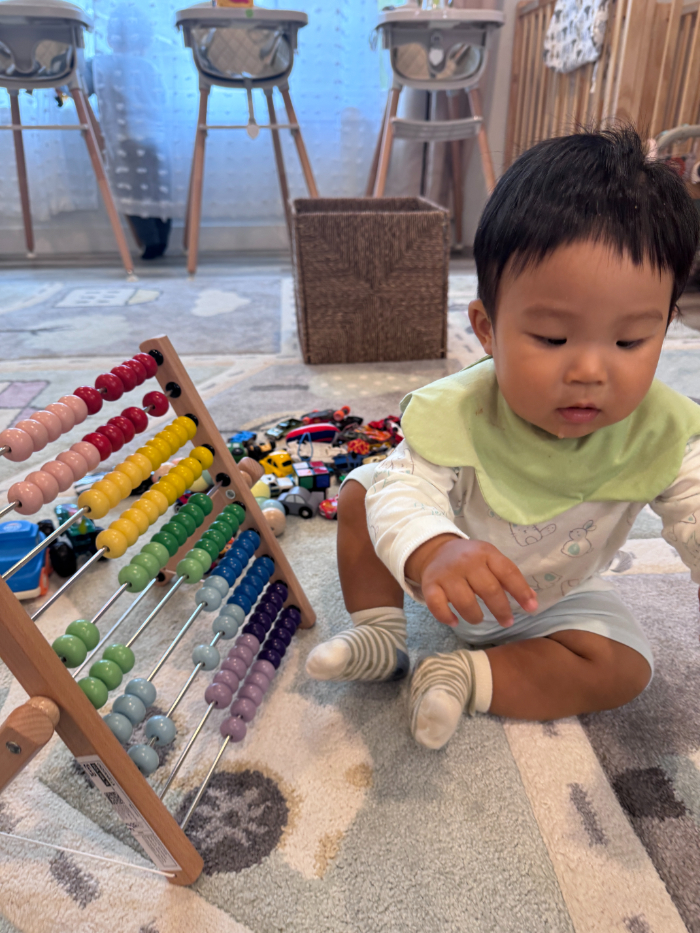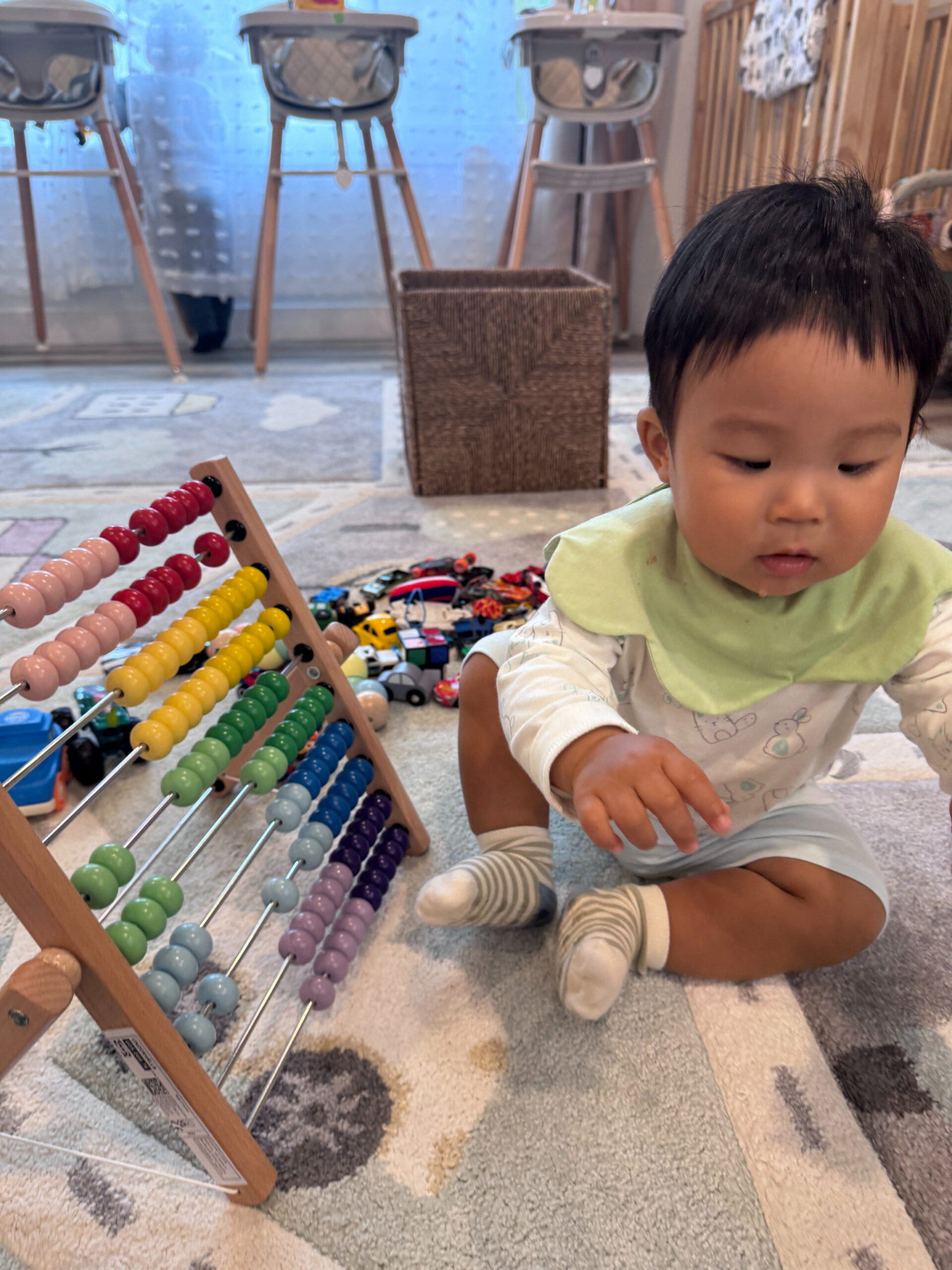Every giggle during peek-a-boo or “why” question from your preschooler signals a growing mind. Cognitive development in early childhood shapes how children think, learn, and solve problems. By understanding this process, parents can nurture their child’s growth without undue pressure. Jean Piaget’s Cognitive Developmental Theory reveals how young minds evolve, with play-based learning at its core. This article explores Piaget’s stages, practical parenting tips, and how a nurturing environment, like Kido Heaven’s, fosters lifelong learning. Ready to unlock your child’s potential? Let’s dive in!
What Is Cognitive Development?
Cognitive development is the process through which children build skills like memory, problem-solving, and critical thinking. From birth to age 7, the brain forms connections at a rapid pace, shaping how kids understand the world. For example, a toddler sorting shapes or a preschooler inventing a story is developing cognitively. As Zero to Three notes, early experiences lay the foundation for lifelong learning.
Understanding this process helps parents foster curiosity, helping kids thrive without the stress of premature expectations. It’s about sparking a love for discovery, not just academic milestones.
Piaget’s Cognitive Developmental Theory
Jean Piaget, a Swiss psychologist, revolutionized our understanding of how children think. His Cognitive Developmental Theory outlines four stages of learning, each building on the last. These stages guide parents and educators in tailoring activities to a child’s developmental needs.
Sensorimotor Stage (Birth–2 Years)
Infants learn through senses and actions—touching, mouthing, and moving. A key milestone is object permanence, where babies realize objects exist even when hidden. For example, a baby laughs during peek-a-boo, learning you’re still there.
Preoperational Stage (2–7 Years)
Preschoolers embrace language, imagination, and pretend play. They might turn a stick into a wand but struggle with egocentrism, finding it hard to see others’ perspectives. For instance, a 4-year-old may insist their way of sorting toys is the only correct one. Play like storytelling fuels cognitive growth.
Concrete Operational Stage (7–11 Years)
Children start thinking logically about concrete objects. They grasp conservation—understanding that pouring water into a different glass doesn’t change its volume. For example, a 7-year-old can count coins accurately and explain why.
Formal Operational Stage (12+ Years)
Teens develop abstract thinking, tackling problems like algebra or debating hypothetical scenarios. They can ponder “what if” questions, like imagining life on Mars.
Learn more at Verywell Mind’s overview of Piaget’s stages.

Why Cognitive Development Matters
Understanding how children think helps parents and educators provide the right support at the right time. Too much pressure to “read early” or “do math quickly” can be stressful for children still in earlier stages. Instead, nurturing natural curiosity through play, exploration, and conversation builds a strong foundation for lifelong learning.
For parents, knowing these stages helps set realistic expectations and celebrate your child’s growth at their own pace.
Lifelong Learning Foundation
Early cognitive skills predict academic success. Studies show children with strong problem-solving abilities by age 5 perform better in reading and math by age 10. Activities like puzzles or counting games build this foundation, fostering resilience and curiosity.
Emotional and Social Growth
Cognitive growth supports emotional regulation and empathy. For example, a preschooler learning to share through play develops social skills and begins to understand others’ perspectives, a key step in the preoperational stage.
Cognitive Development in Action
Cognitive skills come alive through everyday activities, especially in the classroom.
Play-Based Learning
Cognitive development comes alive through play-based learning. For example, a preschooler might start by counting blocks out loud without truly understanding numbers. With guidance, they later realize that the number “5” means five real blocks. Sorting shapes or role-playing as a chef teaches categorization and creativity.
This approach encourages children to discover, reflect, and problem-solve, rather than just memorize. The table below shows how play builds skills:
| Activity | Cognitive Skill | Example |
|---|---|---|
| Block Building | Spatial Reasoning | Stacking blocks into a tower |
| Storytelling | Language Development | Retelling a story in own words |
| Sorting Games | Categorization | Grouping toys by shape or color |
Role of Parents and Educators
Teachers support this growth by asking open-ended questions like, “What happens if we add one more block?” This encourages children to discover and reflect.
Parents can create a stimulating environment with books, puzzles, and toys. For example, reading a bedtime story and asking, “What do you think happens next?” boosts imagination and critical thinking.

Tips to Support Cognitive Growth
Parents can nurture cognitive development with simple, everyday actions:
- Encourage Play: Offer puzzles, building toys, or pretend-play props to spark creativity.
- Read Daily: Books boost language and imagination. Ask questions like, “Why did the character do that?”
- Ask Open-Ended Questions: Prompt curiosity with, “Why do you think the sky is blue?”
- Limit Screen Time: Prioritize hands-on activities to engage the brain.
- Celebrate Milestones: Praise effort, not just results, to build confidence at your child’s pace.
These steps align with Piaget’s stages, ensuring support matches your child’s developmental needs.
Common Myths About Early Learning
Misconceptions about cognitive development can worry parents. Let’s clear them up:
- Myth: “Children must read by age 4 to succeed.”
Truth: Forcing early reading can cause stress. Focus on play and curiosity, which build stronger foundations. - Myth: “All children develop at the same pace.”
Truth: Each child progresses through Piaget’s stages uniquely. - Myth: “Play is just fun, not learning.”
Truth: Play teaches problem-solving, creativity, and social skills.
About Kido Heaven
At Kido Heaven Child Care in Bothell, WA, we believe children are active learners who build knowledge step by step as they grow. At Daycare Bothell, we nurture young minds through play-based learning, guided by Piaget’s Cognitive Developmental Theory.
Our Child Care Bothell programs focus on the preoperational stage, encouraging exploration through hands-on play and pretend activities. Every block stacked, story told, and game played builds your child’s future.
Explore our Kido Heaven Programs or visit our Contact Page to schedule a tour. Call 206-734-2040 today—spots fill fast!
Why KidoHeaven Stands Out
✅ Licensed in Washington State
✅ Aligned with Early Achievers standards
✅ Working Connections subsidy accepted
✅ Daily updates via Brightwheel
✅ Located in Bothell, serving Mill Creek, Lynnwood & nearby areas
✅ Nutritious snacks, safe outdoor space, & positive mealtime routines
📞 Call 206-734-2040 to schedule a tour
🌐 Enroll now
Follow Our Mealtime Moments
Stay updated with more beautiful outdoor meals and daily learning routines on:
Instagram | Facebook | Nextdoor | Yelp | Winnie | YouTube | Upwards
FAQ
1. What qualifications do I need to volunteer in childcare?
No formal qualifications are typically required, but background checks and basic training may be needed. Patience and enthusiasm are key.
2. How much time should I commit to volunteering?
Commitments vary, from a few hours weekly to monthly events. Discuss expectations with the program.
3. Can volunteering lead to a career in early childhood education?
Yes, volunteering builds skills and connections that can open doors to daycare careers or teaching roles.
4. What are the most rewarding aspects of childcare volunteering?
Forming bonds with children, seeing their growth, and contributing to the community are deeply fulfilling.
5. How do I find volunteer opportunities in my area?
Check local daycares, community centers, or online platforms for childcare volunteering opportunities.



